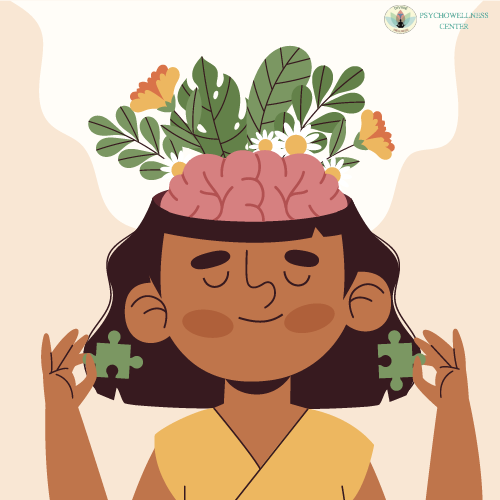Best Marriage Counsellor in Dwarka Sector 10 Dwarka Delhi

Marriage is a union of two individuals, each bringing unique traditions, beliefs, and practices into the relationship. When these individuals come from different cultural backgrounds, marriage becomes a journey of blending diversity. While this enriches the bond with unique perspectives and shared experiences, it can also pose challenges. Cultural differences in communication styles, values, religious practices, and family expectations may lead to stress, anxiety, or misunderstandings. Finding harmony in this diversity requires patience, mutual respect, and open communication.
Cultural Differences and Their Impact on Mental Health
Navigating cultural differences in marriage can sometimes result in emotional stress, anxiety, or even depression. Partners may feel pressure to conform to their spouse’s cultural expectations, leading to a sense of identity loss or conflict. Issues around parenting styles, financial management, or celebrations may escalate into unresolved conflicts, further contributing to mental health challenges.
External pressures, such as societal judgment or familial expectations, can worsen the situation, creating a cycle of emotional distress. These stressors may lead to panic attacks, emotional withdrawal, or strained communication. Recognising these struggles and seeking help, such as psychotherapy, can go a long way in addressing these issues and fostering balance in the marriage.
How Psychowellness Center Supports Couples
At Psychowellness Center, culturally diverse couples receive professional support in navigating their unique marital challenges. The center focuses on the idea that cultural differences should be seen as opportunities for growth rather than obstacles.
Therapies like Cognitive Behavioral Therapy (CBT), Mindfulness-Based Stress Reduction (MBSR), and Emotion-Focused Therapy (EFT) are used to address the mental health challenges that often accompany cultural conflicts in marriage. Through these therapies, couples learn to manage stress, improve emotional regulation, and build stronger connections.
The team at Psychowellness Center encourages couples to embrace their unique cultural identities while finding common ground. Partners are guided to explore each other’s traditions, promote mutual understanding, and work toward shared goals.
Insights from Dr. R K Suri
1. Dr. R K Suri, a leading psychologist at Psychowellness Center, emphasises that cultural diversity in marriage should be viewed as a strength. He explains, “Differences offer couples the opportunity to learn from each other, fostering empathy and understanding.” However, Dr. Suri also acknowledges that unresolved cultural conflicts can lead to emotional distress, including anxiety, depression, and relationship strain.
Dr. Suri highlights the importance of open communication. He encourages couples to explore their traditions together, creating a bridge between their cultural differences. Therapies like CBT and Family Counselling are often integrated into treatment plans to address conflict resolution, improve communication, and promote emotional balance.
2. Mr. Utkarsh Yadav, a cognitive psychologist, sheds light on how cultural diversity in marriage impacts cognitive patterns. He explains that cognitive biases can arise when individuals unconsciously judge their partner’s practices through their cultural lens. These biases can lead to misunderstandings and conflicts.
Utkarsh emphasizes the role of cognitive flexibility in overcoming these biases. He works with couples to explore each other’s cultural values, fostering mutual respect and emotional intimacy. Techniques like cognitive restructuring are employed to challenge and change thought patterns, enabling couples to see their differences as enriching rather than divisive.
3. Ms. Sakshi Dhankhar, a therapist specialising in emotional well-being, focuses on how cultural differences can affect emotional health. Unmet expectations or feelings of alienation can cause emotional distress, leading to withdrawal, frustration, or anger.
Sakshi explains, “Cultural differences can create emotional disconnection if partners lack understanding or effort to accommodate one another.” She works with couples to build emotional resilience by teaching techniques like progressive muscle relaxation, mindfulness, and self-awareness.
By improving emotional health, couples can better navigate challenges and strengthen their bond. Sakshi encourages couples to celebrate small successes, like adopting a new tradition or creating unique family rituals, to foster connection and reduce stress.
4. Ms. Tanu Sangwan, a behavioural psychologist, highlights how cultural diversity influences behavioural patterns in marriage. She explains that partners often have differing approaches to household responsibilities, time management, and socialising, which can create frustration if not addressed.
Tanu emphasises the importance of establishing shared routines and boundaries. “Adapting to each other’s behaviours and habits creates a harmonious environment that respects both cultures,” she says. Behavioural interventions, like habit reversal techniques and behaviour modification, help couples create a balanced lifestyle while respecting cultural preferences.
By addressing behavioural differences with understanding and flexibility, couples can reduce stress and foster unity.
Practical Tips for Navigating Cultural Differences in Marriage
- Open Communication: Encourage honest discussions about cultural expectations, values, and traditions. Avoid assumptions and listen actively.
- Celebrate Diversity: Embrace each other’s backgrounds and find ways to incorporate traditions from both cultures into daily life.
- Respect Boundaries: Acknowledge each partner’s limits, particularly when it comes to family or societal expectations.
- Seek Professional Support: Reach out to a therapist or counsellor if challenges feel overwhelming.
- Practice Flexibility: Be willing to compromise and adapt to create a balanced dynamic in the relationship.
Cultural Diversity as a Strength
Cultural diversity in marriage is an opportunity for growth, offering partners the chance to learn from each other and build a shared identity. While challenges may arise, they can be addressed with patience, understanding, and support.
The therapists at Psychowellness Center, including Dr. R K Suri, Utkarsh Yadav, Sakshi Dhankhar, and Tanu Sangwan, provide couples with the tools they need to navigate these differences. By combining psychotherapy techniques with practical strategies, they help partners transform cultural diversity into a source of strength and unity.
Conclusion
Navigating cultural differences in marriage may not always be easy, but it is deeply rewarding. By fostering open communication, respecting individuality, and seeking professional guidance when needed, couples can create a harmonious and fulfilling relationship that celebrates diversity.
At Psychowellness Center, therapists provide evidence-based support to address challenges like stress, anxiety, depression, and conflict resolution. With their expertise, couples can build lasting relationships that thrive on mutual respect and shared understanding.
Contributed by Ms. Sangeeta Pal, Counselling Psychologist
References
- Gottman, J. M., & Silver, N. (1999). The Seven Principles for Making Marriage Work.
- Johnson, S. M. (2008). Hold Me Tight: Seven Conversations for a Lifetime of Love.
- American Psychological Association (APA). (2025). Cultural Competency in Marriage Counselling.
- Psychowellness Center: www.psychowellnesscenter.com


.png)

SHARE